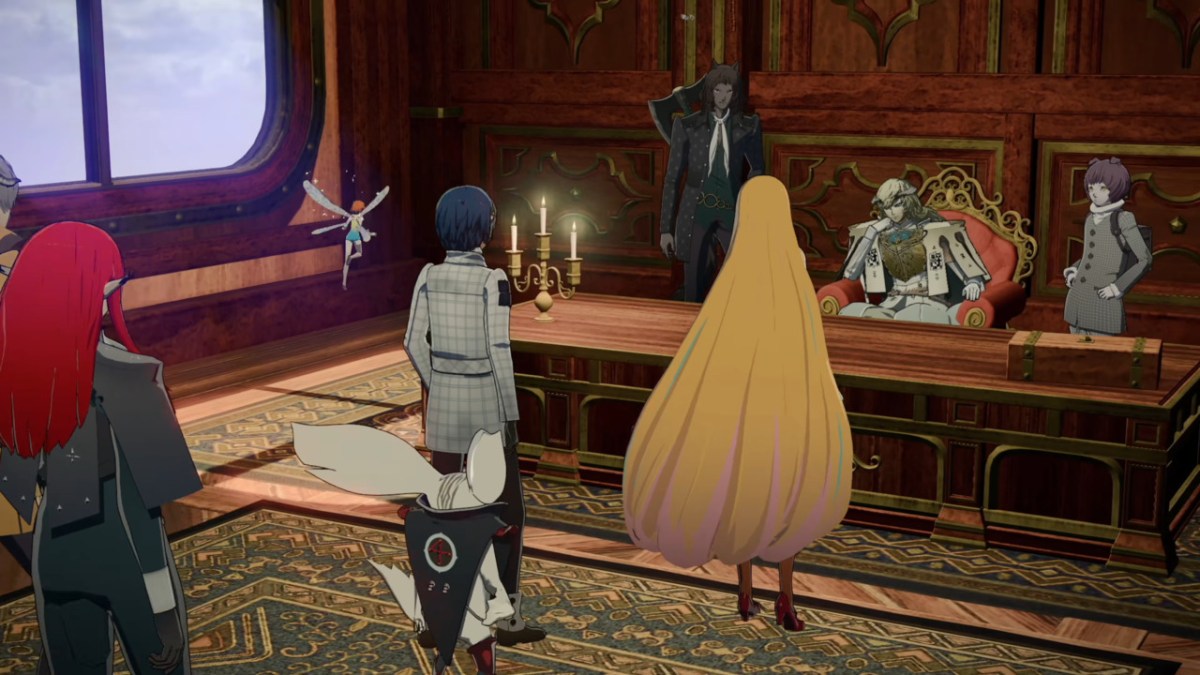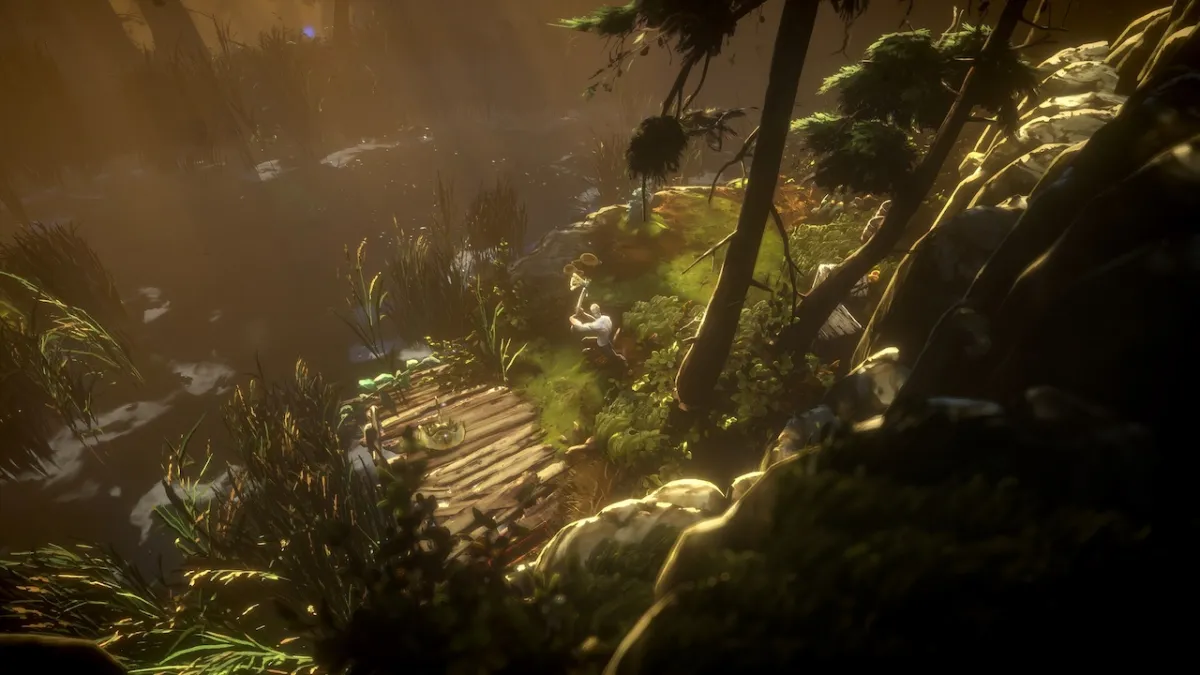Released in 1997, The Last Express is a game of maturity, elegance and absorbing quality. And yet, it’s also a tale of tragedy. The chances are that most of you reading this have never heard of it, let alone played it. That’s something that needs to change.
At its core The Last Express is a good old fashioned point and click adventure, but the peripheral elements that surround its take on one of gaming’s most tried and tested methods of engagement is what makes it stand out and continue to impress. From the outset it’s clear that this is a game with only a minor interest in playing by the standardised rule set.
The game is set on the final journey of The Orient Express, just prior to the outbreak of The First World War and the forced cessation of the famed train route linking Paris with Constantinople. It’s a setting high on opulence, snobbery and political tensions. One minute you might be chatting with German weapons dealer August Schmidt in the luxuriate confines of the dining car, the next you’re hanging outside your sleeper carriage’s window in a bid to avoid the attentions of the dogged French police.
Perhaps the most interesting thing about The Last Express is its use of time. Unlike almost every other game in existence, events here unfold in real-time as opposed to being triggered solely by your own actions. This means that if you happen to visit the dining car post the weapons dealer’s preferred supper time then he won’t be there. Of course, you can run into him again at dinner tomorrow (or at a different location) but events may have taken place which will alter the course and outcome of your discussion – for better or for worse.
This continually progressing arrow of time affects things in other ways also. The train will always stop at stations at the same time on each playthrough, there’s a definitive end to the game in the form of that final stop at Constantinople (although the game can be ‘solved’ before then) and other characters are affected by your actions and those of others around them.
You play the role of Robert Cath, a young, well-educated, multi-lingual American doctor expecting to join his friend Tyler Whitney aboard the train. However, upon finding Whitney dead in a pool of blood in your sleeping quarters, you’re immediately forced to make a difficult decision; hide the body or hurl it out of the window. It’s a choice that sets the tone of what’s to come and acts as the catalyst for many of your subsequent actions and those of your fellow passengers.
It’s Midsummer Murders, period drama and Broken Sword all rolled into one. You can probably throw a bit of Indiana Jones in there too.
Aside from the arms merchant your fellow passengers include British spies, Russian royalty, Serbian military police and taboo lesbian lovers. It’s a techni-colour of cultural and politically reference and relevancy that creates a well rounded and exhaustive sense of time and place. In some way or another (and in varying degrees depending on your timings and actions) all of these characters – and more – come to play a part in working out who killed Whitney, why they killed Whitney and what your role in the bigger picture is.
There’s something else that’s special about The Last Express, something that will have already made itself very apparent for those that have been paying attention to the images that accompany this article. Like filmmaker Richard Linklater’s Waking Life and A Scanner Darkly, The Last Express uses rotoscope animation to bring its world to life; a technique that game designer Jordan Mechner had previously employed during production on Prince of Persia.
By filming live actors against a green screen and then colouring them in during post-production, The Last Express manages to create a sense of surreal realism without setting a foot in the much-dreaded uncanny valley.
Rotoscoping also rids The Last Express of many of the passive vs. active interactivity issues experienced by 1998’s The X-Files game, in which live-action video was stitched together in an order decided upon by the player’s action.
The problem with using these filmed sequences is that players felt disconnected due to their expectations of live-action video being a passive medium associated with film and television rather than the active medium of videogames. (Essentially, the more realistic things are, the less we think we can change them/interact with them.) By painting characters with stark, solid lines and block colours The Last Express manages to undo that sensation while remaining adult and filmic.
The use of real actors gives the game an edge of theatrics and emotional engagement that is so difficult to achieve through animation alone. Conversations, confrontations, overheard chatter and body language all come across as distinctly human, making it easy to identify with and believe in the characters as much as the detailed setting and historical accuracy make you believe in the game’s world and plot.
It’s the combined use of real actors, rotoscoping and real-time unfolding of events that prevents the game from feeling at all dated. Indeed, many of the latest third-person shooters and platformers that have been released on current-gen consoles in the past couple of years feel considerably older and more clichéd than The Last Express does and ever will.
Unfortunately, the final journey of The Orient Express is a fitting metaphor for the journey of the game. An extravagant budget of reportedly $6 million failed to be turned into something that found widespread appreciation. Despite positive coverage from critics and commentators The Last Express sold only around 100,000 copies, failing to recoup the initial investment. The game’s original publisher went bust just a few months after the game’s release – the result was a disappearance from store shelves.
Thankfully, it has found a new home via PC digital distribution. And for a shockingly generous price, too.
Was it the pre-WWI setting, the uncompromising design or the whole ‘point and click’ thing that spelt doom for The Last Express? Probably a mixture of all three. No matter what though, The Last Express will forever go down in my book as the finest games I’ve ever played and one that deserves to be experienced by more people.
Read Article Metaphor: ReFantazio places big twists on social links and romance


Category:
News
Metaphor: ReFantazio places big twists on social links and romance


